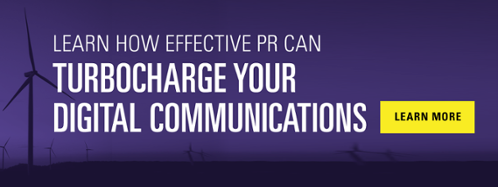
One of my favorite lines from The Office was when Steve Carrell, in character as Michael Scott, said, “Wikipedia is the best thing ever. Anyone in the world can write anything they want, so you know you’re getting the best information.” Like much of the best humor, it’s funny because there’s a kernel of truth in there.
But it’s also sad because, not only on Wikipedia, but using social media platforms—Reddit, Facebook, Twitter or whatever—people can write whatever they want. If we spend any time at all online we’re bombarded with people making statements about all kinds of things and it seems that all too often, if they back up what we already believe, we just accept them blindly.
Opinions Are Not Facts
As the late U.S. Senator/U.N. Ambassador/Harvard sociologist Daniel Patrick Moynihan reportedly said, “You are entitled to your own opinion. But you are not entitled to your own facts.” Opinions are wonderful things and I have many strong ones, but I try to base them on reality. If the facts contradict my opinion, I change my opinion. I don’t go looking for “better” facts.
Having spent more than three decades of my career as a B2B journalist I learned early on the difference between fact and opinion, a distinction that seems to matter less and less. There are many examples of this trend from the political class in this country, but since we’re in the midst of an election season and regardless of one’s political inclinations, passions are running high, let’s look across the pond to the U.K. and the recent vote to pull out of the European Union.
Appeal to Emotion, But Focus on the Facts
Much of the campaigning in favor of Brexit told voters that pulling out of the E.U. would put an additional £350 million/week into the healthcare system and reduce immigration. Neither argument was factual, but they worked.
This quote to The Guardian from Arron Banks, who was a major donor to the Leave.EU campaign is quite enlightening: “It was taking an American-style media approach,” said Banks. “What they said early on was ‘Facts don’t work’, and that’s it. The remain campaign featured fact, fact, fact, fact, fact. It just doesn’t work. You have got to connect with people emotionally.”
Critically Evaluate Your Sources
Also from the U.K., a recent biography of the Prime Minister David Cameron included an anecdote about him having committed a gross and “obscene act” during a dining society initiation ceremony in his university days. Being suitably sensational and providing an opportunity to embarrass a stuffy politician, the tale soon became the subject of numerous humorous Tweets, as well as being covered by the BBC and other media outlets as “real news.”
When questioned about it, after all the publicity, the author, whose day job is as a journalist for the Daily Mail, could only point to a story told by an anonymous source with no other corroboration. “We couldn’t get to the bottom of that source’s allegations,” she said in a television interview. “So we merely reported the account that the source gave us … We don’t say whether we believe it to be true … It’s up to other people to decide whether they give it any credibility or not.”
Maintain Journalistic Integrity
Is this what journalism has come to? Are editors now taking the position: “It’s a great story; we don’t know if it’s true and we won’t tell you from whom we heard it, but you decide whether or not you believe it.”?
And then both in the U.K. and here in the U.S. there are those who believe that 97% of the scientists in the world have engaged in a gigantic hoax to convince everyone else that the planet is threatened by global warming. According to these doubters who have rejected an objective, “fact-based reality” in favor of what their guts tell them, there must be some other reason why 2016 is shaping up to be the warmest year in recorded history or that the glaciers are receding.
In the age of so-called citizen journalists there are really no limits to what one is likely to come across online. Wide-ranging, honest and open debate is crucial to a free society: but the key word is “honest.”
Political scientists Jennifer L. Hochschild and Katherine Levine Einstein, of Harvard and Boston Universities, respectively, address this issue in their recent book, Do Facts Matter? The authors conduct an analysis of the use, nonuse and misuse of facts in several high-profile public debates—the case for invading Iraq, belief about Obama’s birthplace or religion, et al.—to argue that a well-informed electorate remains a crucial component of a successful democracy. “While citizens’ inability or unwillingness to use the facts they know in their political decision making may be frustrating, their acquisition and use of incorrect ‘knowledge’ pose a far greater threat to a democratic political system.”
With that in mind I urge everyone in your writing, whether for yourself or on behalf of a client, to be truthful and accurate. If you need to make things up or resort to name-calling to support your argument, then find another argument.
Use persuasive language and emotional appeals to help others see your viewpoint. But whatever you do, start with the facts.




Let’s Connect
Ready to build, grow, manage and protect your brand? Complete the form below to discuss how we can help.